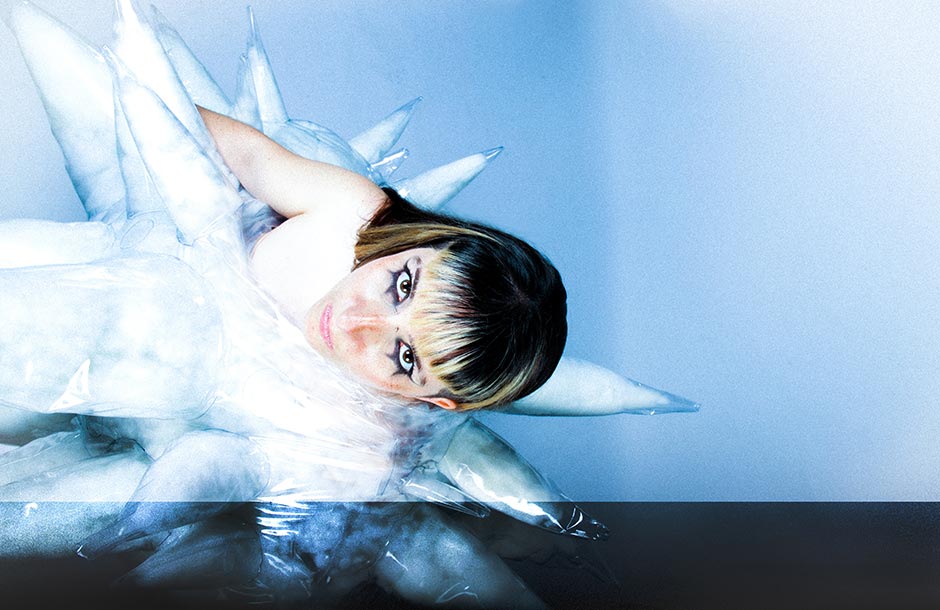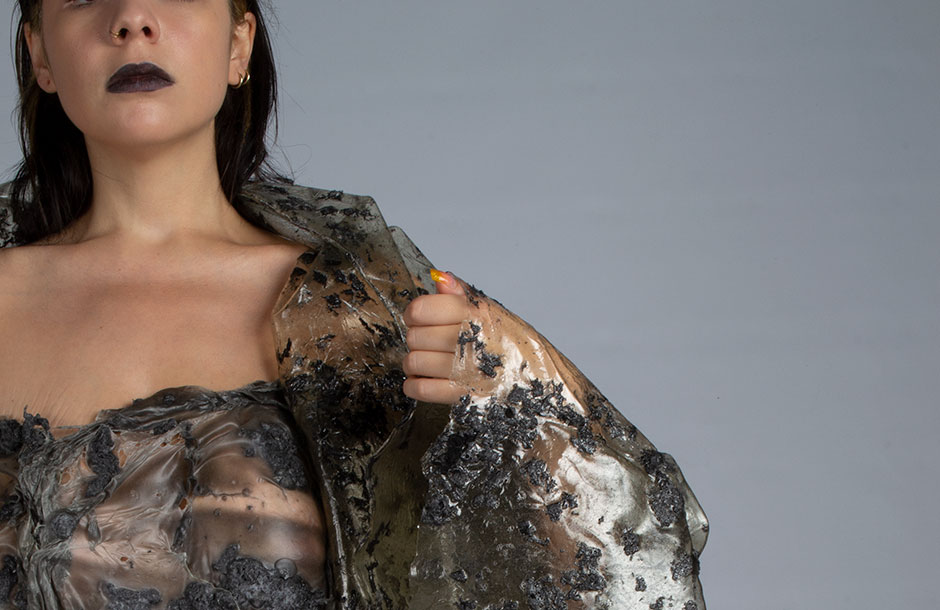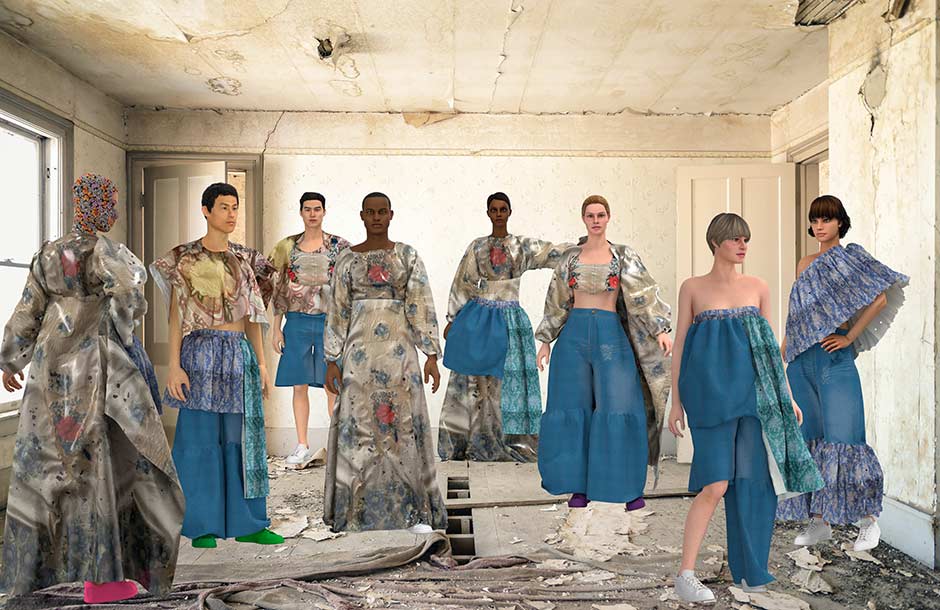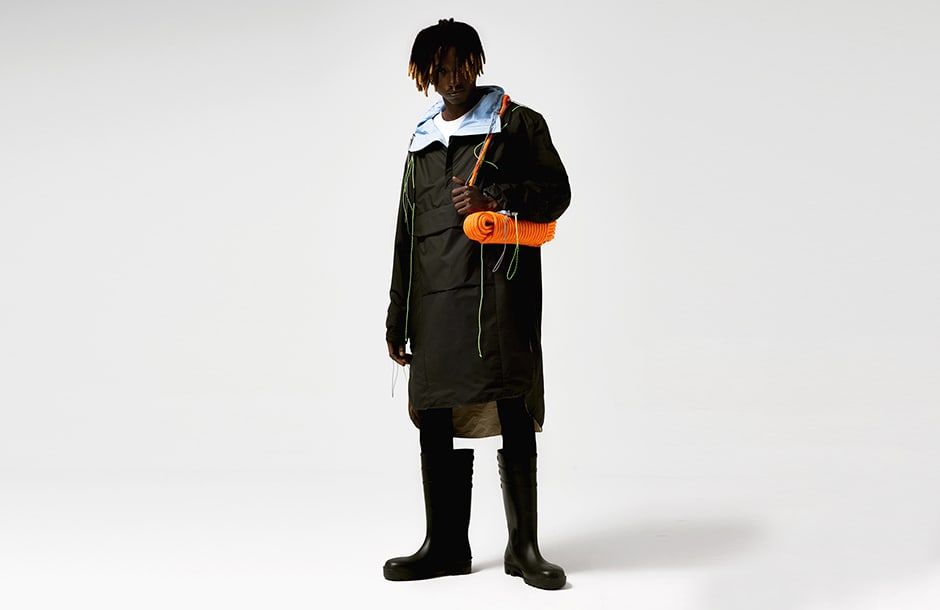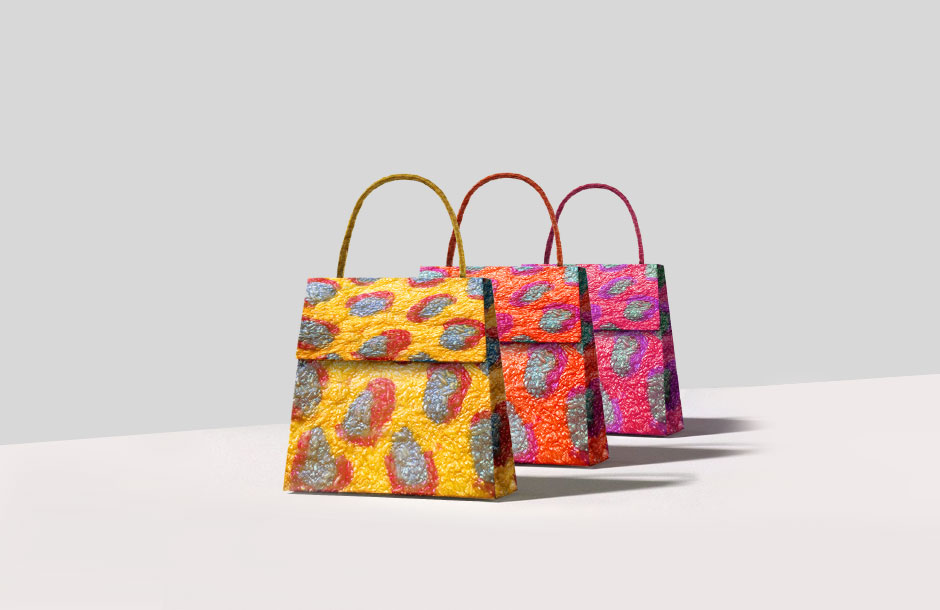
Master in Fashion Design and Technology
The fashion world needs professionals who are capable of proposing innovative solutions in multidisciplinary environments that combine technology with art, design and creativity.
Description of the curriculum
- Edition: 5th
- Teaching period: from October 2024 to June 2025. Final master's project presentation: June 2025
- Schedule: From Monday to Thursday from 16:00 to 19:00
- Modality: on-site
- Language: English
- Price: 9.500 €
- Qualification: Master's Degree in Design, Technology and Innovation in Fashion awarded by the UVic-UCC
- Credits: 60 ECTS
Presentation
With the fashion industry facing a decisive transition, the Master's degree in Fashion Design Technology proposes an approach to the sector based on sustainability, creativity and experimentation.
Recognising the necessity to radically rethink fashion, this master's degree encourages students to develop imaginative solutions to transform the current dynamics of the industry and contribute to a new scenario that combines environmental balance and social commitment with economic viability and the use of cutting-edge technologies.
In line with BAU's academic and research approach, the master's degree establishes stimulating and unexpected relationships between fashion and disciplines such as crafts, audiovisuals and biology, creating an enriching exchange of ideas, processes, materials, techniques and possibilities.
The programme is structured in five modules which thoroughly explore digital production processes and 3D pattern making; the potential of design research, digital printing and laser cutting; prototyping from interaction and smart fabrics; the application of biomaterials and the principles of the circular economy. Learning culminates in the final project, where students carry out all the phases of a real project.
BAU's Master's Degree in Fashion Design Technology trains young professionals in the conviction and desire to transform the sector. All this under a key premise: from innovation, critical spirit and creative freedom, each student designs their future to promote a more humane industry that cares for the common good.
Syllabus
Module 1 – Design for change Module 2 – Digital systems for a new fashion paradigm Module 3 – Strategies and creative research methodologies Module 4 – Technologies and material innovations Module 5 – Prototyping and finishing resources. Master's Degree Final Project
Programme
Module 1 – Design for change
Assisted by speculative design, new technologies applied to fashion and debates with sector professionals and specialists, the first module will prepare students for the shift that is about to occur in the fashion system.
- Introduction to new technologies in fashion. Situate ourselves in terms of the possibilities that technology offers us for innovation and change towards a new paradigm and sustainable systems in the fashion system.
- Speculative fashion design. Theoretical block, which will help us to intuit a future in which fashion will be thought of in a different way.
- Pattern technologies and sustainable systems: 0-Waste.
- Fashion future Laboratory. Debates on the fashion system with specialists and professionals from the sector that will help us to understand the reality of the sector and the complex world of fashion, visualising strategies, methods and development models that will validate our creative process.
Module 2 – Digital systems for a new fashion paradigm
Today’s fashion design programs and digital software provide access to tools that are sufficiently agile and flexible to redirect the production system chain towards a more creative and sustainable future. Customisable digital body modelling, direct design on the body using 3D simulation and new research systems in computer pattern making will revolutionise the way we envisage fashion creation, reduce time usage, broaden our design skills, and also allow us to embrace artistic research in digital contexts.
- Construction of the digital body. Flexibility, mutation and deconstruction. Open codes of production. Eco-couture
- Dressing the body in a digital context with 3D design program CLO.4.0
- Art and digital media and how to research in digital environments and virtual realities
- Connections with compatible formats of digital pattern making. Gerber software
Module 3 – Strategies and creative research methodologies
This module will contextualise fashion design, providing it with multidisciplinary tools and methodologies that are used in other fields, such as ethnography and social innovation, to create a design that is focused, real and connected with the user. Furthermore, extreme fashion design proposals will be analysed along with the way in which the market absorbs any idea of dissident design.
- Ethnographic methodologies, field research and social innovation applied to fashion design
- Management and promotion of innovation projects. Collaboration with ESADE through management simulations and business games
- Creation, distribution and positioning
- Theoretical block. Fashion activism – hacking fashion – disobedient design: dressing the body as a political statement.
- Interactive tools. Electronics, e-textiles, wearables, soft sensor, soft robotics, skin electronics.
Module 4 – Technologies and material innovations
Fashion design can be approached from the perspective of working with materials, not only with smart textiles and those which are provided by technology, but as a material basis that requires contemporary design decisions which combine sustainable solutions, innovation and craftsmanship. We will experiment with uncommon materials by applying both digital and manual technologies in the creative process, which will help to link it to the environment.
- Sustainability. Upcycling
- Digital Manufacturing Modular systems, seamless laser-cut patterns, chainmail systems, structures and flexibles in 3D printing
- Natural biomaterials and dyes
- Conductive filaments
- Thermosensitive material
Module 5 – Prototyping and finishing resources. Master's Degree Final Project
This last module will be developed through a manufacturing and prototyping laboratory, providing tools for the realisation of projects. In addition, a theoretical block on body, gender and diversity will introduce students to the current discussions and issues that are fundamental to the fashion of the future. The module will also work with art direction to attain a well-oriented aesthetic result that transforms the project into a professional visual proposal.
- Theoretical block on body, gender and diversity
- Prototyping as a creator of new aesthetics. Garment finishes through the application of available technologies such as laser cutting, embedding or heat sealing
- Photography, visual communication and art direction
Teachers
Coordinator
Elisa Amann
Doctoral student. Fashion design. Coordinator of the Master in Design, Technology and Innovation in Fashion
Coordinator
Núria Costa
Co-founder of ZER Collection brand
Jaron Rowan
Head of Research and PhD Unit Coordinator
Elisabet Roselló
Prospective research and consulting
Raquel Buj
Experimental fashion designer and architect specializing in new materials, innovative crafts and digital fabrication
Josep Pagà
Grado en Diseño mención Moda. Investigador y patronista
Nuria Mora
Fashion Designer
Núria Costa
Co-founder of ZER Collection brand
Clara Davis
Textile and materials designer
Claudio Marzà
Bachelor's Degree in Fashion Design
Mónica Rikić
Degree in fine arts. Electronic art and creative programming
Elisenda Fontarnau
Bachelor's Degre in Fine Arts
Elena Martín
Bachelor's Degree in Arts With Honours in Fashion
Ana Villagordo
Environmentalist
Career opportunities
- Fashion designers.
- Fashion sector professionals.
- Specialist in new technologies and digital media applied to fashion.
- Specialist designer in biomaterials applied to textiles.
- Fashion designer of sustainable methodologies.
- Designer of interactive processes related to clothing.
- Fashion designer specialist in virtual systems.
- Researcher.
Payment methods
Total cost of the course: 9.500 €
The total cost includes an amount of 200 € concerning the university fees, the administration expenses and the compulsory insurances.
Payment methods
BAU, Arts and Design College of Barcelona offers different terms of payment:
-
Single payment
-
Part payment, in 3 instalments:
-
1st payment, due on enrolment: consisting of 40 % of the fees excluding taxes. An amount of 200 € concerning the university fees is added to the resulting cost
-
2nd payment, due November 5: consisting of 30% of the course excluding taxes
-
3rd payment, due January 5: consisting of 30 % of the course excluding taxes
-
Students and former students of BAU benefit from 10% discount on any of the courses if they have exceeded at least 50% of the credits for a Degree, Higher Degree in Design or the Diploma in Graphic Design; or 100% of the credits for any of the Master’s or Postgraduate degrees.
More information about scholarships and grants.
Information about the registration process.
Academic regulations for Masters and Postgraduate Degrees of BAU.
Download the brochure
Enter your details and we will send you an email with the Master in Fashion Design and Technology brochure.
